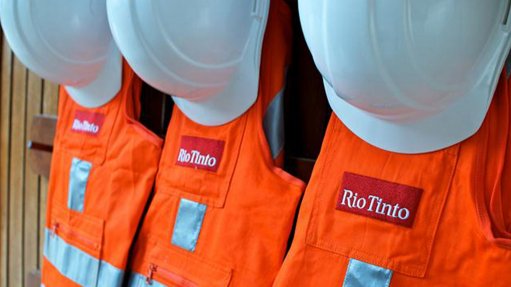
PERTH (miningweekly.com) – Diversified miner Rio Tinto has delivered on its climate change targets, with the company having slashed its greenhouse gas (GHG) emissions intensity by more than a quarter since 2008.
The global mining group has reduced its GHG emissions intensity by 20.3% from 2008 to 2015, exceeding a 10% target that it had set. By the end of 2016, the company had reduced its GHG emissions intensity by 26%.
“We achieved this by raising efficiency within our business, and by divesting or closing emissions-intensive assets. In 2015, we extended our target period to 2020. Today, 67% of the electricity we source is from hydropower. The majority of this is in Canada, where we own 4 000 MW of hydroelectric capacity,” the miner reported on Tuesday.
In the company’s first dedicated climate change report, CEO Jean-Sebastian Jacques noted that it was Rio Tinto’s aim to be part of the solution, which he said could only be delivered through the collective efforts of business, governments and consumers.
He pointed out that the company’s products, such as copper, had a vital role to play in energy transmission and storage, borates in agriculture, and iron-ore and aluminium in urbanisation and transportation.
The report noted that there was a need for large reductions in global GHG emissions to reduce the extent of future climate change and avoid the most severe impacts. This, coupled with the world’s increasing requirements for secure, affordable energy, created challenges which were best met by companies, governments and society working together.
“Governments must lead by providing clear, consistent and effective climate policy frameworks. Level playing fields are essential for businesses to play their part. At Rio Tinto we support a market-based price on carbon. We believe this is the best way of achieving emissions reductions at least cost,” Jacques said.